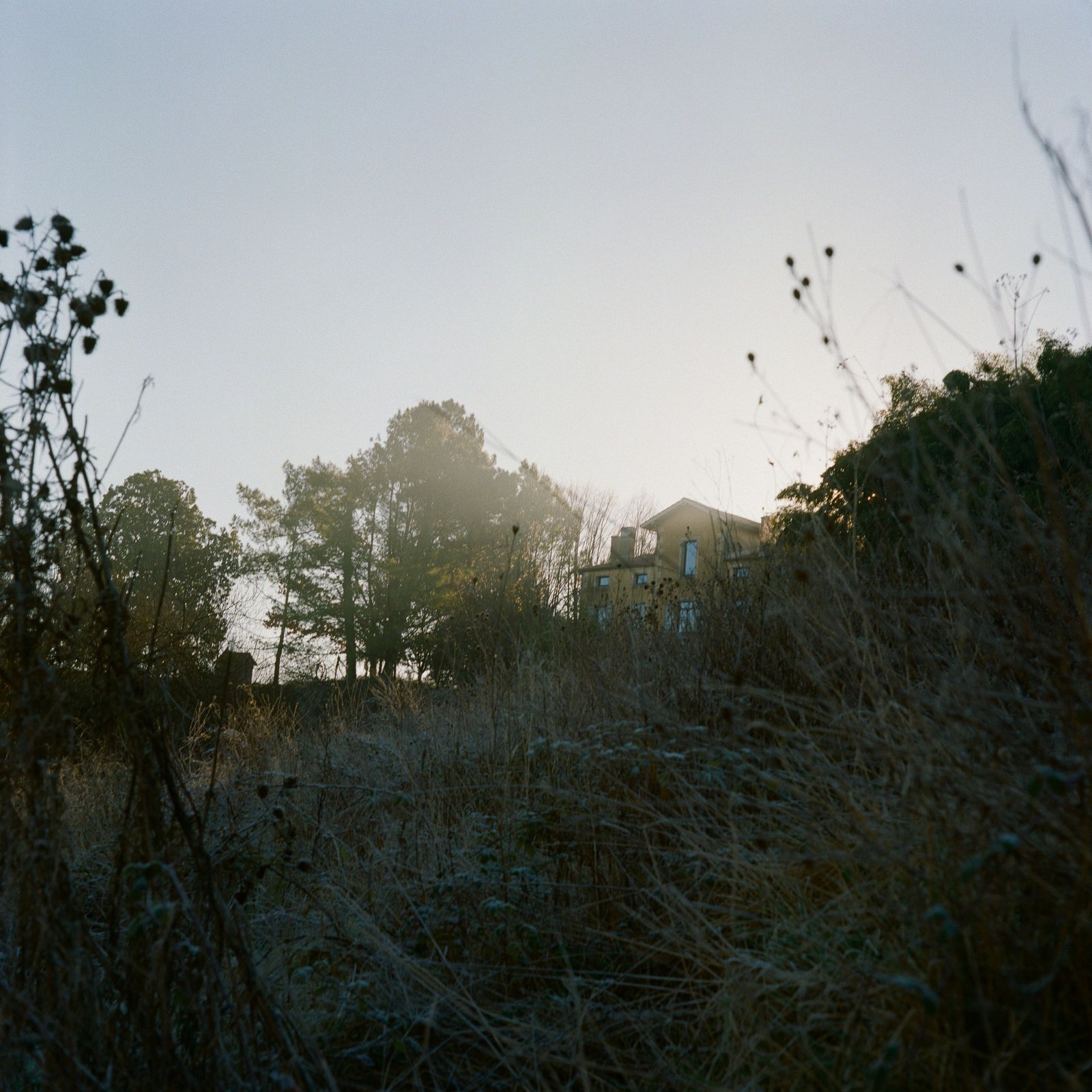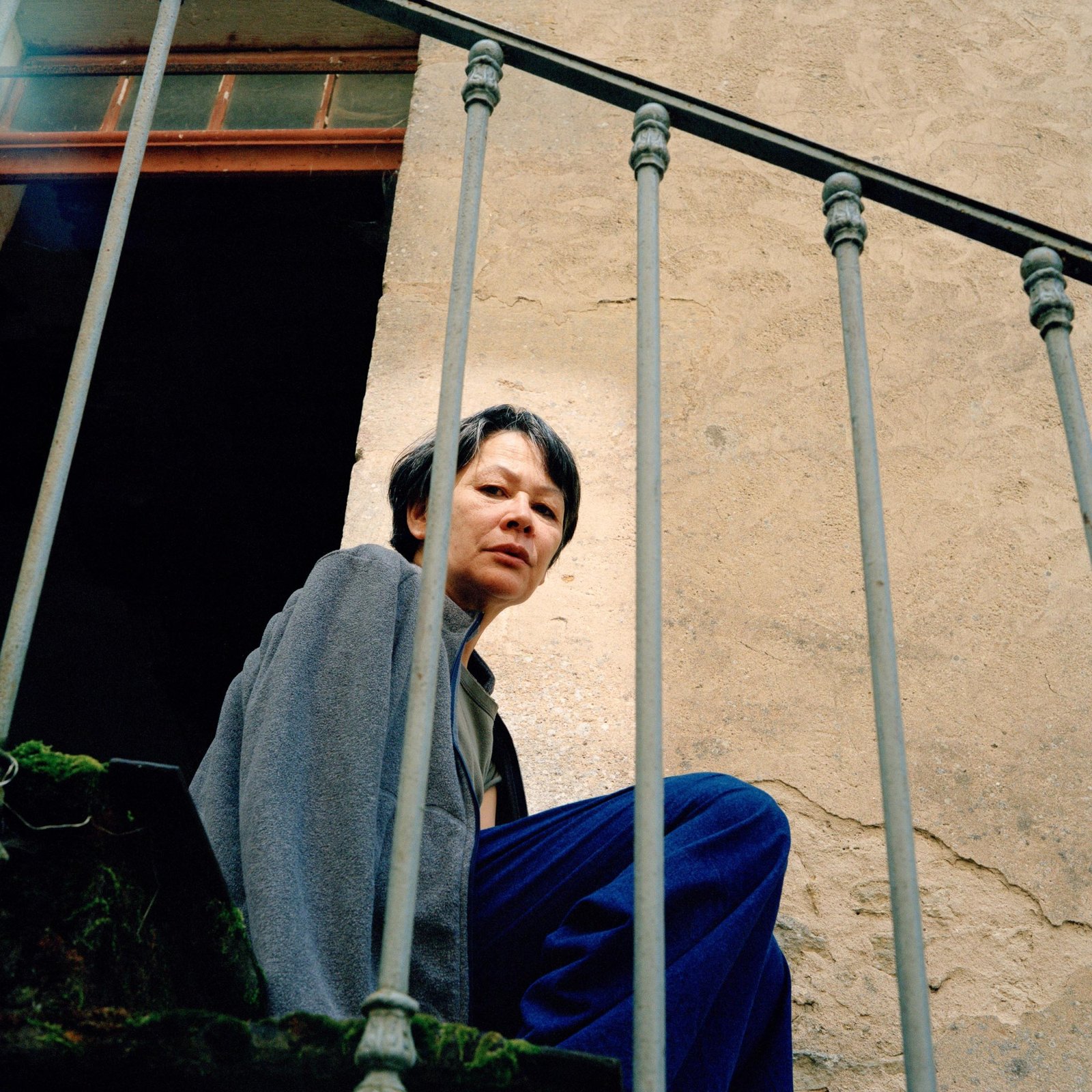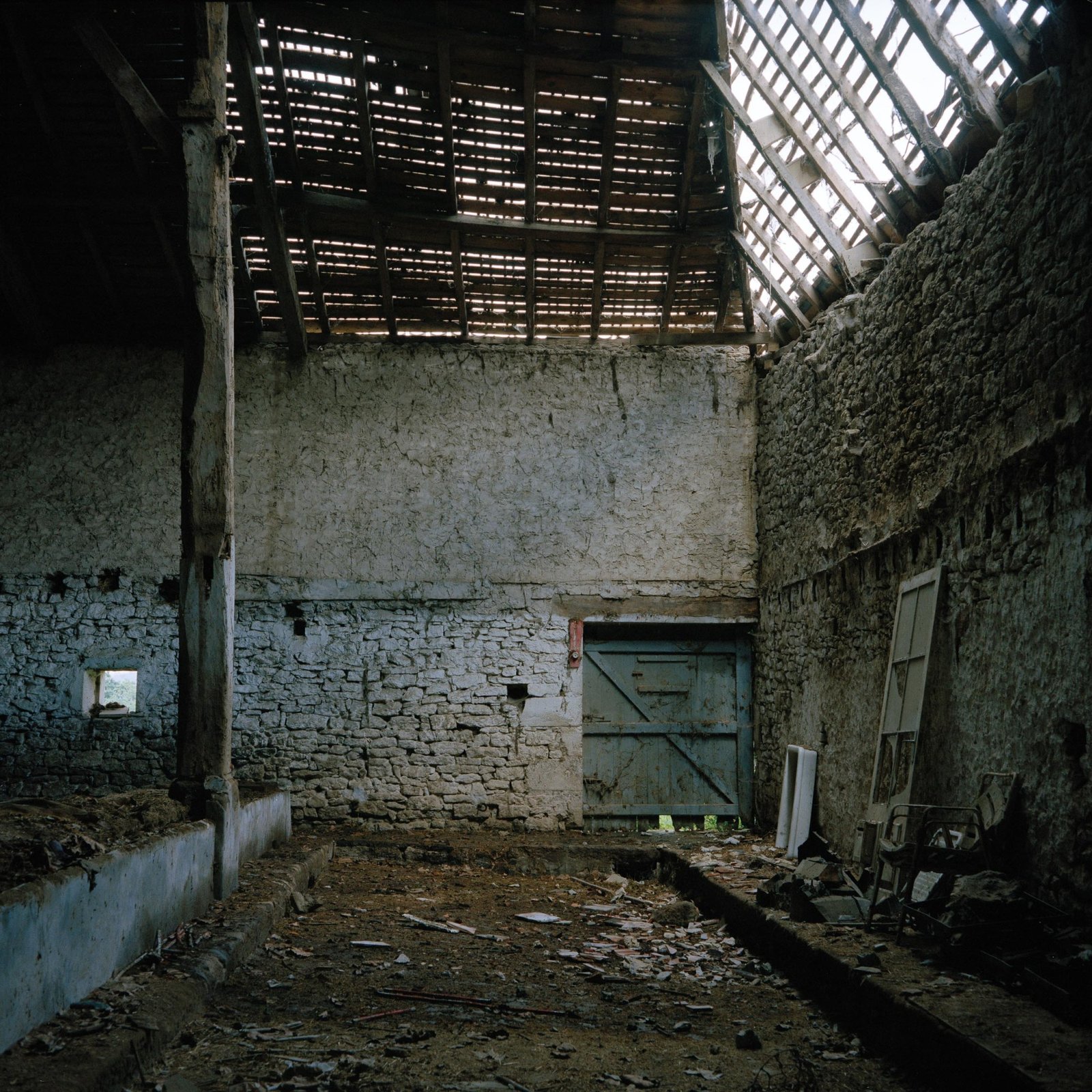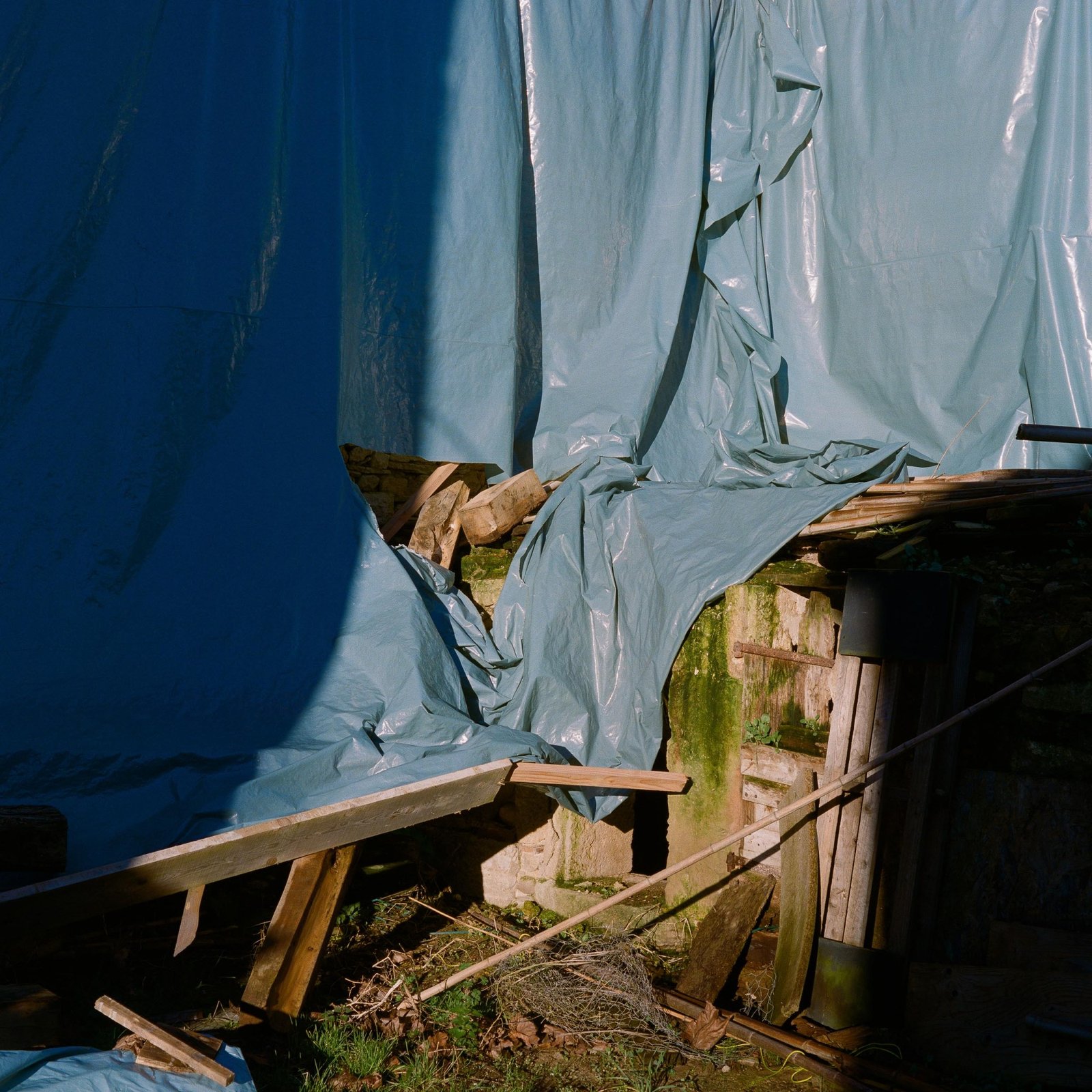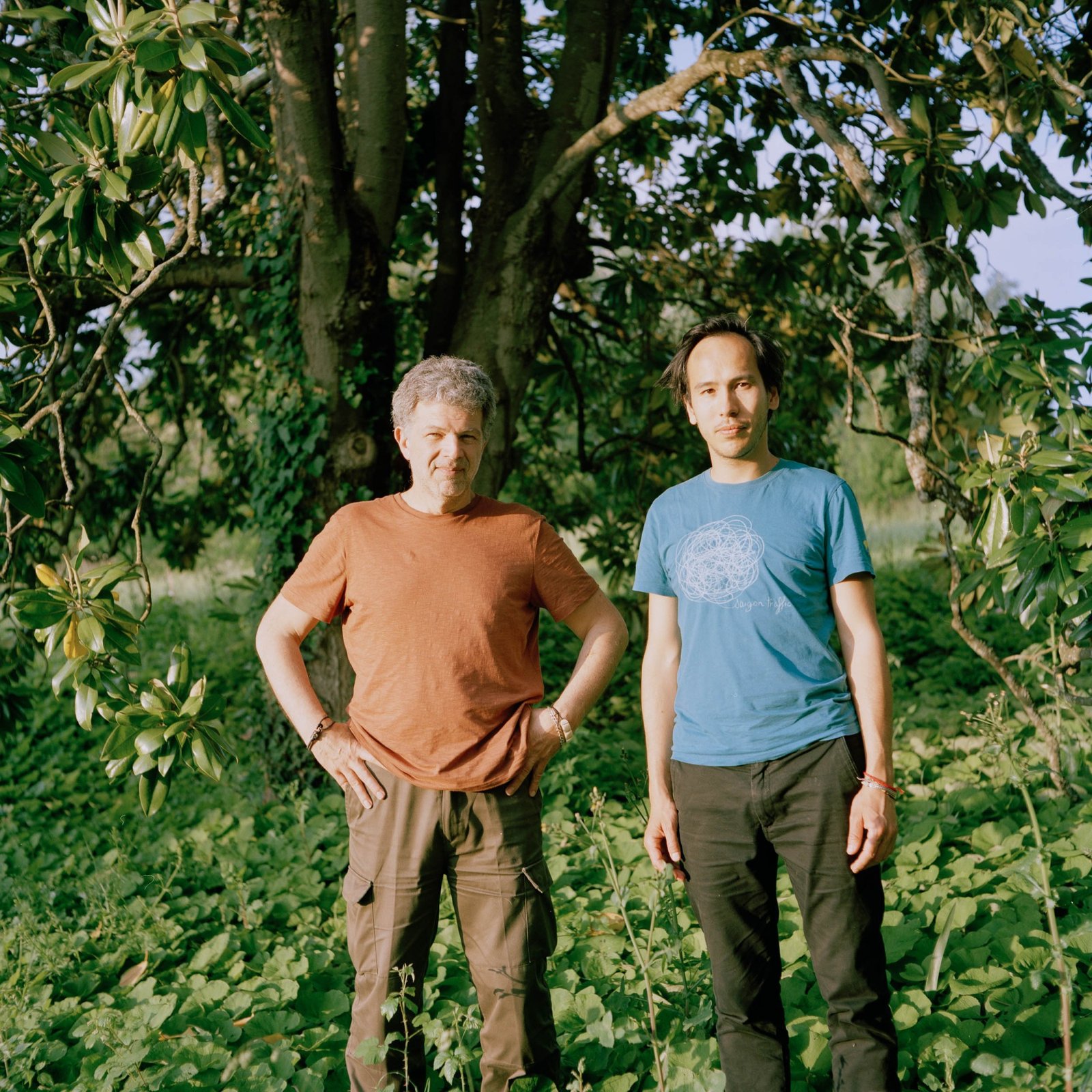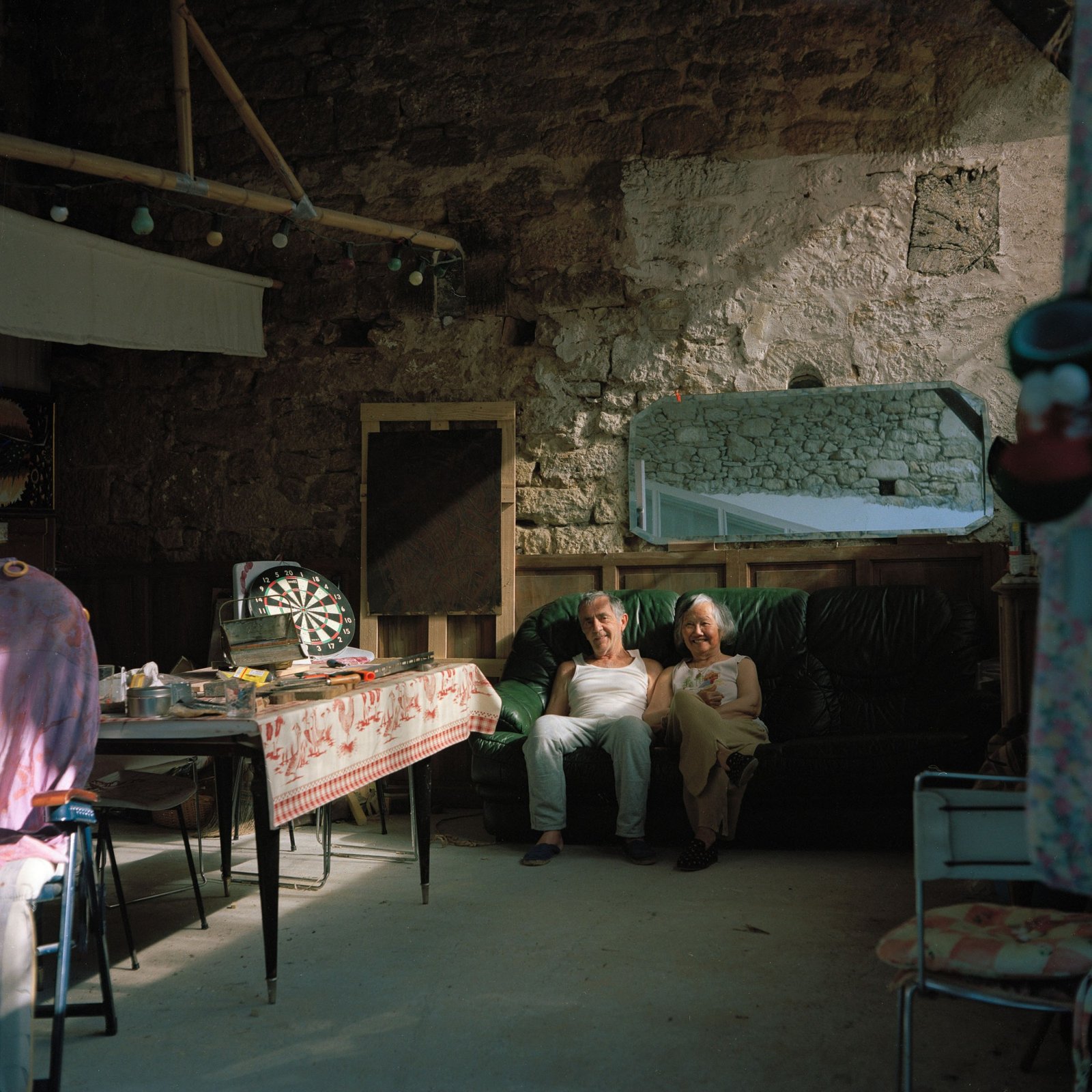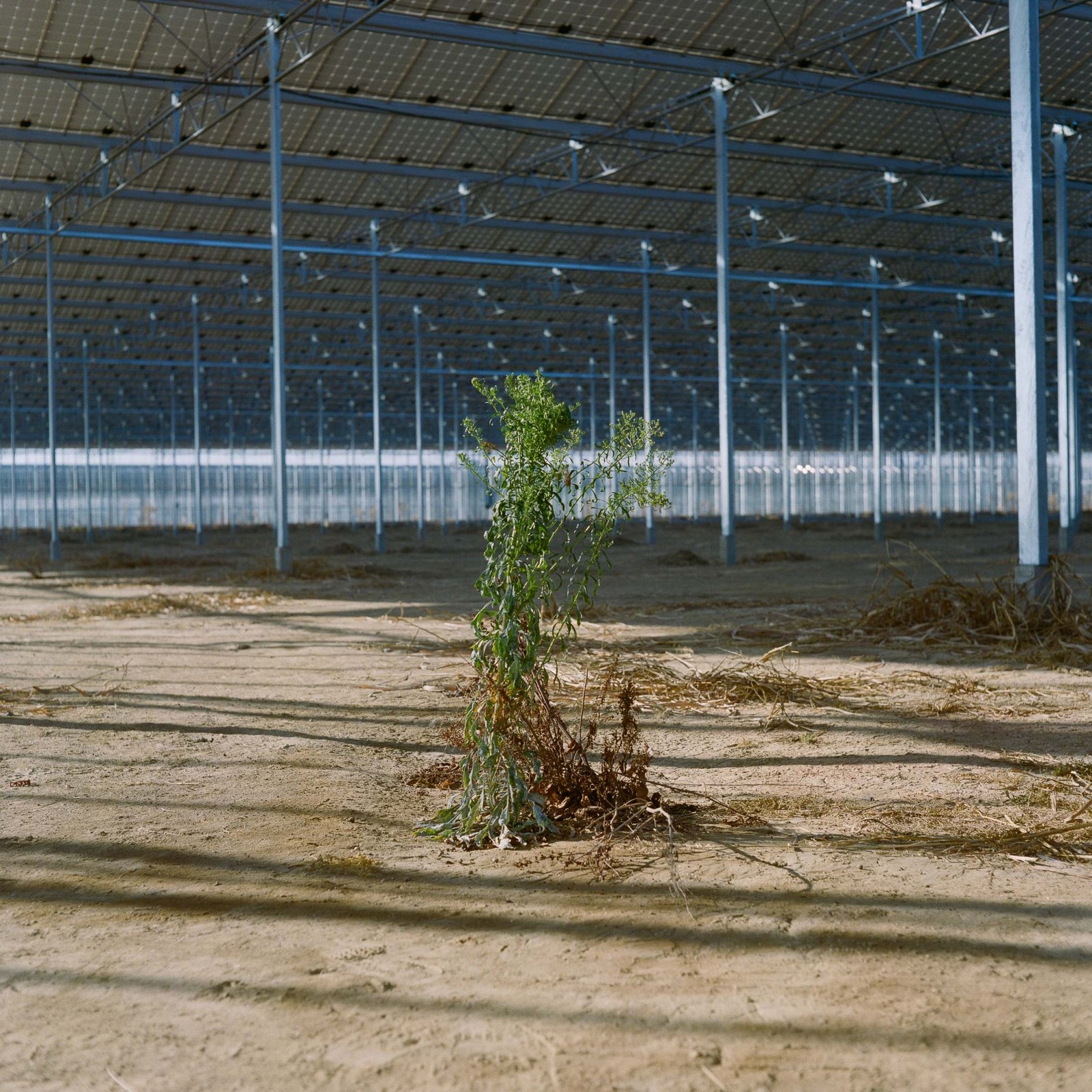After the loss of his brother and moving to a small french village situated outside of Bordeaux. Social documentary photographer Lewis Brillet’s Homebound explores family, home and sense of place in a beautiful and moving display of honesty. “The comfort of home has become a delicate imbalance of conflicting emotions. At once a source of solidarity and strength, but also a constant reminder of the fragility of life.”
The introduction to Lewis Brillet’s Homebound describes the loss of his elder brother, Tuan, in a tragic accident. Not far from where he passes, Brillet’s family began work on a new family home. “An optimistic long-term project we hoped would provide a base for family and friends in the future.” In this interview, we look at the images from Homebound and discuss the strong emotional undertones of the series, exploring sense of home and the deep connections Brillet has within his work.
The need to rebuild our lives both physically and mentally has led each of us to deal with the influx of emotion differently, as we try to regain stability and peace of mind. For me, the feeling of guilt and absence remains heavy amongst the backdrop of the endless construction. This body of work is drawn through the residual conflict pertaining my confused sense of home, since my parents moved to a small french village situated outside of Bordeaux. A recess in time where the past dominates the future, a reality inescapable through the changing of setting. We must reform a sense of structure from the fractured one we have endured here.
What drew you to photograph this topic; with such strong emotional attachment to the series, was this a conscious decision to document these emotional times?
Initially, I wasn’t thinking too much about what would result of the work, it was more of an intuitive exercise to process what was happening in our lives. I realised the parallel between my internal development and how it corresponded with the development and progress of the work. Eventually accepting that our personal story and the emotional attachment I have to the project, could also relate to a wider audience by exploring broader themes of home, relationships, self-discovery, and loss.
Four years ago we lost my elder brother, Tuan, in a tragic accident. Not far from where he passed, we had recently begun work on our new family home in the southwest of France. The feeling of incompleteness connected to loss and displacement, led me to search for something to help ease the pace of events. Amidst periods of clouded thoughts and a precarious environment, the act of documenting my family was a way for me to re-inhabit myself and refrain from neglecting or escaping reality.
You mention that you have a confused sense of home, was this project a way of exploring this and did this affect the way you approached this series?
Yes. My parents decided to move back to France to be closer to family after being based in the UK for over forty years. My brother, sister and I grew up in England and would regard that as our first home. But in recent years I have started to question what home means to me and to those around me. Other relatives gradually joined my parents in this small village in France in order to be closer to each other. I come from a large and widespread French/Vietnamese family, my family being the only ones to have been based in the UK. The fact that we mostly now live in the same country, encouraged me to seek a deeper understanding of what the notion of home means.
This series combines the nuances of home life with the deeper conflicting sensibility of an unstable family dynamic. On the one hand the series represents the evident heavy absence following the loss of my brother that will always be associated with this specific place. On the other hand, it reflects the need for solidarity, a further understanding of the self, and the perseverance to rebuild the foundations of family and home, wherever that may be.
As you question what home means to you, what are you thoughts on this?
As I just moved to Paris last year, I’m still forming my own sense of home in a somewhat familiar but also very foreign environment. I often feel as if the changing of setting is a temporary distraction from my unwillingness to face inner fears and issues, quickly falling back into habitual tendencies. This project urged me to investigate the broader context of home, aiming to adapt my personal perspective to make it more accessible both for the viewer and for myself. I’m not sure if I have come closer to figuring out what home means to me specifically, as I am still asking myself the same questions.
Tell me about the people in the images?
The portraits are of my immediate and extended family. I wanted the portraits to be coherent enough to emit a directness and sincerity, whilst also stating my own presence within each image. Everyone photographed in the project has a unique opinion of home, and I wanted to consider how him or her responded to this environment. Also incorporating the connection they have to me as a son, brother, nephew, cousin and photographer. As more of my relatives moved to the area, including them in the project was a natural development.
What do you hope that people see in your work?
I hope that through this work people can relate to my conflicting ideas of home. Everyone has their own experiences when it comes to home and family, and this project pushed me to confront my own. Contrary to the solemn nature of the work, I’d like it to portray a feeling of hope and unity even during the most painful of times.
Looking back at this project now, do you feel anything new or different? How did choosing to photograph this topic affect your thoughts?
The project has been a transformative process and the impact has had a residual impact on how I developed internally. As I am now in a different place both physically and mentally, when I look back at the work it provokes different emotions. Predominantly what I gained most from doing this is having more of a feeling of closure in regards to that specific thought process. I think I needed some visual evidence that would allow me to see the natural progression of things, using photography and writing as a means to overcome difficulties I have in communicating my emotions vocally. As well as a way to externalise my thoughts to counteract my ongoing reluctance to seek professional help in therapy. Home is still a fascinating subject for me, and I will surely continue to explore what it means in the future, taking what I have learnt from my personal experience further afield.
Your work is deeply connected to your personal thoughts and emotions, even looking through your other projects and poetry it would seem that you create to explore and as you mention, externalise your own thoughts. Tell me a little about your poetry and is it important for you to stay connected to your project?
I find it really important to remain connected to my projects. Even at times when I try to take a step back, I naturally find a way to link it back to the personal. I think this is because I get emotionally attached to projects and the relationships I have with people form the foundations of the work. I have always enjoyed writing. At school my favourite subject was english, specifically due to the freedom of thought in creative writing. As for poetry, I usually list what’s in my head to relieve some of the pressure that builds up. This rapid medium contrasts the slow process I undergo in my photographic practice. For me, photography and poetry go hand in hand. The act of compulsively jotting down what’s on my mind may give me more instant satisfaction, but the slower process I have in my photographic practice allows me to concentrate more on the larger concept. For example, In a photograph I am trying to formulate the unspoken visually, equally in my poetry I often try to transcribe the vivid image that’s in my mind. I am still learning to balance the use of image and text, as with both mediums often the strongest work is misplaced or lost over time.
I’d like to continue to discuss with you the meaning of home and family. For many photographers or creatives, they start to explore these themes by looking inwards at their own family lives and just as you have, it becomes personal. One particular area of your work that interests me and something that you have discussed briefly, is that the act of documenting has given you the chance to explore and question your own experiences. You write “I face a constant battle between being at ease with the physical sense of home, and being at home with my mind, fluctuating emotions and mental state.” What are your thoughts on home as a physical and mental space?
It will always be a popular subject for people in some way or another, largely because many themes and social issues can be traced back to personal experiences of one’s home and family. Certainly the act of seeing the family, the quiet of the countryside, the recent events, and memories continue to weigh heavily on my perception of home. Additionally, documenting what we’ve been through was complicated, but I feel it became a means to reflect, to really look at ourselves and how we see each other.
I talk about being at home with my mind, referring to how emotions are constantly triggered from the physical family home, and in order for both mental and physical spaces to synchronise, I must first regain clarity mentally. Also allowing the simple nature of a home to exist before we project our complex thoughts onto it, to affirm itself as a space to bring the family closer together.
What does family mean to you?
Family is the origin from where most of the fundamental questions I have in life come from, at the same time it’s one of the things I don’t have to know the answers to just yet.
Has this project ended for you now or will it continue? What are you working on next?
For now, I am going to focus on other projects. Although, I have continued with the theme of home in one collaborative side project exploring how young creatives living in Paris have personalised their individual spaces. I am also working on a more conceptual multimedia project about the state of limbo.
